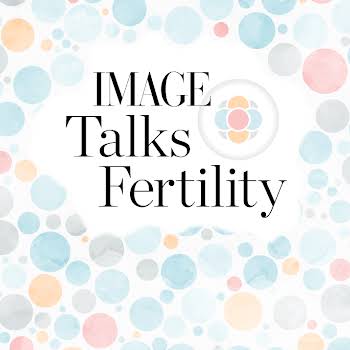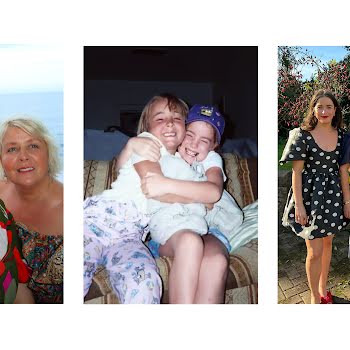
By Dominique McMullan
22nd Sep 2023
22nd Sep 2023
Sponsored By
Societal attitudes towards fertility have shifted monumentally in Ireland in one lifetime. So how can we keep the momentum?
When my sister was born in 1990, she was one of the first babies born through IVF in Ireland. She was born just four years after the very first Irish IVF baby. The IVF programme in Ireland was controversial and was the subject of much discussion by hospital authorities, the media and clergy alike. The treatment was a physically challenging and emotionally lonely experience for my mother. There was still so much secrecy and stigma surrounding assisted reproduction, and if that wasn’t enough, the technology was far less advanced, meaning a tough experience all around for those involved.
Within my sister’s lifetime, a significant transformation has taken place and societal attitudes towards fertility have shifted monumentally. Thinking of the experiences of my mother and other first IVF patients in Ireland, we live in such a different Ireland now.
Past obstacles
The practicalities of having treatment 30 years ago seem nightmarish now. In the late 80s and early 90s, there was only one unit in Ireland delivering IVF services. For anyone living outside of Dublin city, undergoing treatment would mean cruel travel demands at a time when there weren’t even motorways. That logistical and financial burden must have been incredibly oppressive and would have put fertility treatment out of the practical reach of so many people. “When we opened Waterstone Clinic in Cork twenty-one years ago” explains Dr John Waterstone, Medical Director of Waterstone Clinic, “it was a huge help to patients in Munster, but also beyond. We saw the number of people travelling from other counties to us and opened satellite clinics in other counties to substantially reduce the amount of travel needed so that patients could access the care they need closer to home”.
Advertisement
Staying close to home wasn’t always an option for people building their families in alternative ways, however. Thirty years ago, single women and same-sex couples had to travel to clinics in the UK like the London Women’s Clinic or even further afield to have treatment with donor sperm to build their families. They have become so commonplace there is now legislation (the Children & Family Relationships Act, 2015) to support the rights of patients using donor sperm and eggs, and of course, in 2015 Ireland voted to legalise same-sex marriage, enshrining the legal rights of LGBTQ+ couples and their families.
Modern advancements
While society has changed, has fertility treatment itself? There have been some incredible technological advancements in fertility science, and the aim is always to lead to better outcomes. “Success rates are so much higher now because we have dedicated facilities, cutting-edge laboratories and incredible scientists and doctors who are specialists in this field”, explains Dr John Waterstone. “Over the last twenty years, we’ve seen so much innovation, and this has offered opportunities to patients that were never there before. Maybe the most notable developments are in freezing technologies, they have changed the game.
“We brought routine blastocyst culturing techniques into Ireland and now those embryos can be frozen so successfully that patients can build their entire families from one cycle of IVF, which reduces the difficulty of treatment for so many. Freezing advancements opened more possibilities too, particularly the ability to preserve fertility by freezing eggs. We were the first clinic in Ireland to use open-system vitrification for eggs to deliver patients superior success rates. Patients can use these technologies to make their life plans now.”
These very welcome changes and scientific advancements have opened discussions about fertility and family structures – and all the subjects related to them are starting to lose their taboo status. It is estimated that 12 million babies have now been born through IVF worldwide. “The very first IVF baby is now 45 years old, and so many babies born through treatment are now in their adulthood,” explains Mary McAuliffe, Head of Clinical Services at Waterstone. “We are now seeing our own first Waterstone Clinic babies come to adulthood. Even some of our staff were born via IVF themselves. It has taken time, but IVF is becoming more and more normalised.”
As a society, we need to be more aware of each other and respectful of each other’s privacy.
At the time my mother had treatment, in 1990, the experience was made so much more difficult by the lack of information, knowledge and support. The emotional side of IVF was woefully neglected. “Fertility treatment had a lot of stigma around it at the time”, explains Laura Hackett, fertility nurse specialist, “no one was talking about it and people were afraid to share their experiences. We needed society to open up, and give ourselves the opportunity to support and be supported”. Within a decade of Ireland’s first IVF baby, the National Infertility Support and Information Group (NISIG) was set up and they continue to support people experiencing fertility issues. This support group in Ireland blazed a trail for open conversations, information events and support circles. Across the world, digital supports too began to grow via fertility websites, blogs, documentaries, Facebook groups, Instagram pages, and TikTok channels to name a few.
Advertisement
Increased awareness
While the support has grown exponentially, there still can be many emotional challenges. While we know infertility is a medical issue and there is no “failure” in having difficulties, many still feel weighed under by social expectations, and unconventional family structures still face misunderstandings and prejudices. “People can still be insensitive around the topics of fertility and family,” notes Laura Hackett. “It can be very hard being asked fertility-related questions and comments as they are invasive, even if they are well-meaning. As a society, we need to be aware of this and respectful of each other’s privacy.”
Part of that awareness will be brought about by education that fertility cannot be taken for granted. “Fertility testing has given us the power to find out where we stand and make informed decisions”, explains Laura Hackett. “If we need them, there are treatments and technologies available to help. This is empowering in ways we couldn’t have imagined 30 years ago. Our reproductive health is simply an area of our health we need to look after.” In a fantastic development this year, the Department of Health in the Irish government will finally support IVF treatment through the public health system.
All of these changes have led to a society with more choices and empowerment. We can make plans around our fertility now, including how and when we want to build our families. We can also choose our care providers, explore clinics’ success rates, and make sure the philosophy of care matches the support we need. “Family is everything,” notes Mary McAuliffe, “and of course when you want to build one, you need to have the right team for you. It’s important to have that choice.”
All these changes have taken place within my sister’s lifetime. We have gone from silence to support, from taboo topics to government priority, from limited options to personal choices. It is nowhere near perfect, but these changes are making difficult journeys a little bit easier and hopefully more and more so in the future. We can pave the way for generations to come, build those supports and leave those taboos firmly in the past.
The team at Waterstone Clinic are Ireland’s leading experts in fertility, and they are our partners for the IMAGE Talks Fertility series. See waterstoneclinic.ie for more information.
Advertisement























